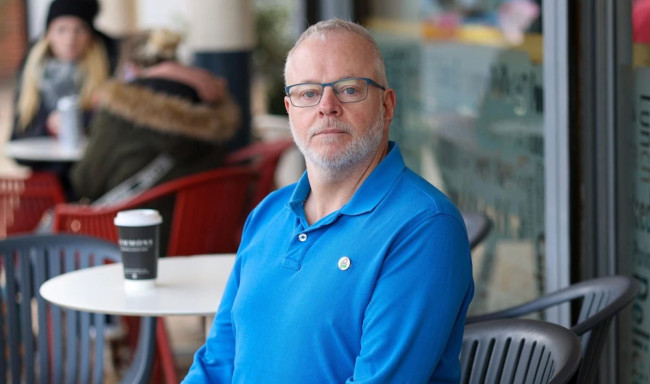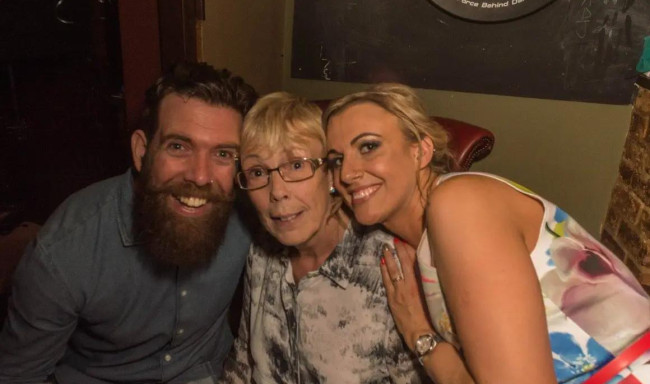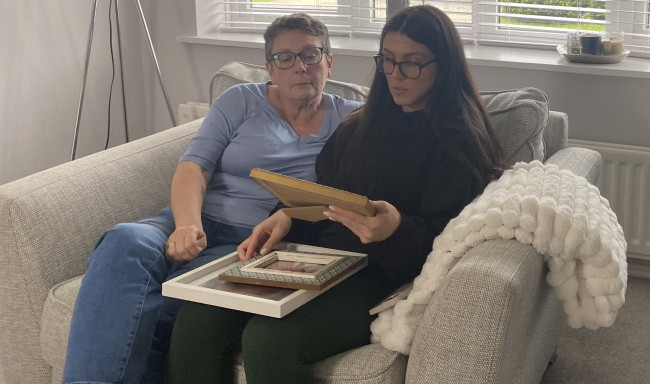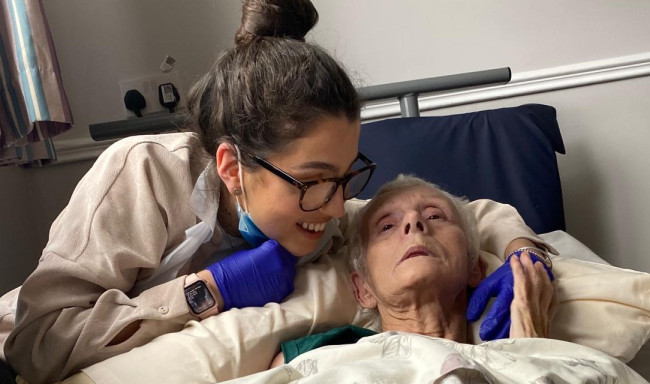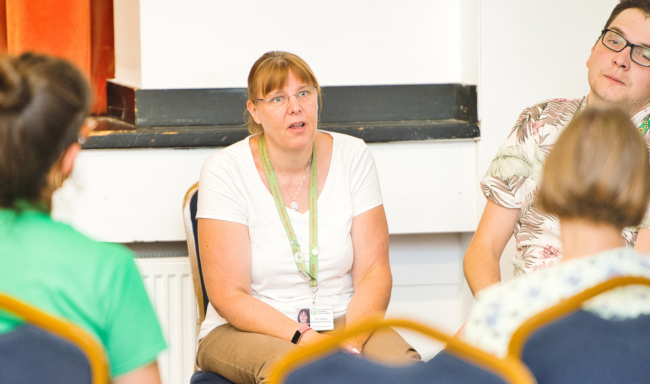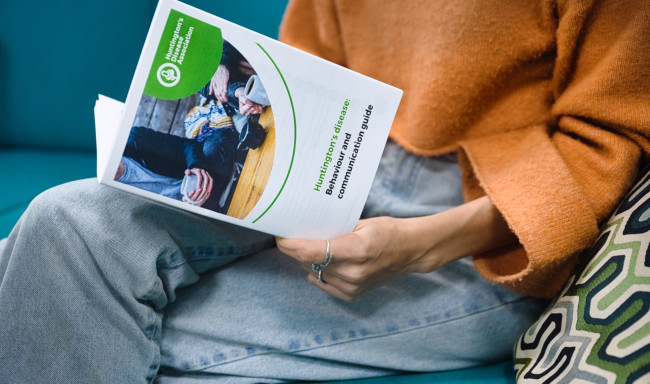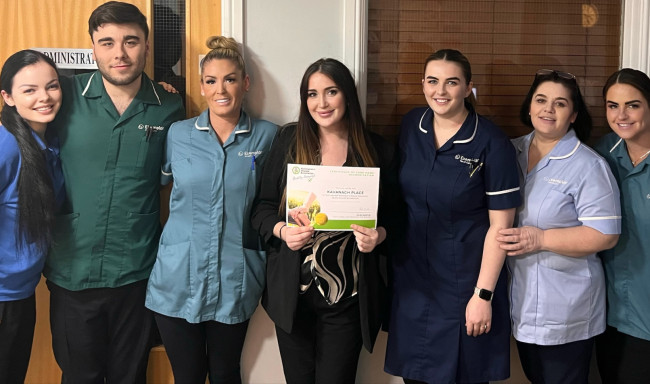During the pandemic, Charlotte put her life on hold to work in the care home where her nan resided so that she was not alone and could assist with her complex symptoms.
Charlotte’s nan, Lin, was impacted by Huntington’s disease and her mother is in the middle stages of the disease. Charlotte has also tested positive.
Lin was fed via a peg feeding tube and spent most of her time confined to a low bed on the floor in a padded room due to her involuntary movements caused by the disease.
After two bad care home experiences, Lin was moved to Defoe Court Care Home in Newton Aycliffe.
My nana was the first resident with Huntington’s disease that the carers at Defoe Court had looked after. They were brilliant and always wanted to learn more. This was so far from the experiences we’d had before; previous homes had struggled with my nan's symptoms and neglected her due to the complexity of her illness. My mum got in touch with the Huntington’s Disease Association who carried out a training session in the nursing home for the staff.
When the pandemic hit, Charlotte and her family went from regular visits including staying overnight in Defoe care home, to seeing her twice between February and September 2020 in the peak of the pandemic. The second time Lin was visited she screamed in frustration due to the confusion of why no one had been to visit and that she was unable to touch them.
When the privilege of visiting anytime was taken away with government restrictions things became ridiculously tough for her. She couldn’t communicate by speech so talking on the phone or Facetime was difficult. Both visits were outside, nan wasn’t even up to getting out of bed, never mind hoisted into a chair and sitting outside. During the visit, she became extremely agitated and cried non-stop and she didn’t understand why she couldn’t touch us or come close. It was really traumatic.
This experience was not uncommon for people in care homes across the country. Visiting was restricted which was detrimental to vulnerable care home residents, especially those with neurological conditions such as dementia or Huntington’s disease.
In a matter of months, Lin lost over 10kg. Looking for a way to support her nan’s complex needs and to try and stop her increasingly rapid deterioration, the only option if she couldn’t visit the care home, Charlotte would have to work there instead.
At the time of the pandemic, Charlotte worked 40 hours a week in an NHS HR role. Due to her previous care home experience, Charlotte got a job there. Continuing to work in her 9-5 role, Charlotte worked evenings and weekends at the care home often working over 70 hours a week.
I was happy to help out anywhere I could. They had put themselves on the line and cared for my nan during the pandemic for months before this so I felt it was the least I could do. I worked Christmas day in 2020 and absolutely loved it.

The garden they made outside Lin's window - a song she sung to Charlotte growing up.
In the care home Charlotte assisted residents with physical and emotional care, building relationships with them, challenging behaviour due to the resident's confusion about the new government restrictions, providing privacy and dignity of care for the dying and bereaved and communicating with and supporting families over the phone and during covid-visits.
I assisted in the delivery of end-of-life care for residents who were dying or had a progressive illness to ensure dignity in end of life. It gave me a level of strength and resilience that I needed to support my nan during her death. Being there for someone in the final hours and beyond, is something I will always carry with me. Care homes do not get the recognition they deserve – the staff work so tirelessly often dealing with complex and emotional conditions whilst trying to juggle the care of 40+ residents.
Charlotte’s family experienced three very different nursing homes. The family worked tirelessly to ensure Lin’s got the care that she needed. They unfortunately had to take one care home to court due to the negligence that she was subject to.
I think there’s a lot to be done in care homes to ensure that they’re safe and supportive environments for Huntington’s disease residents. I think the links between nursing homes and clinical care teams should be better. There is a huge lack of understanding of Huntington’s disease across many medical professionals and I’ve encountered this my whole life, from GPs to consultants, to paramedics and physiotherapists. I’ve experienced a lack of knowledge and sometimes ignorance to the disease on many occasions.
Through consultation with the Huntington's community, the Huntington’s Disease Association learned that people often find choosing a care home to be a negative experience, with many people describing interaction with care homes as a battle or fight. 71% of the people asked, said they did not have a good experience. This needs to change.
The Huntington’s Disease Association run a care home accreditation to improve the knowledge and standard of care for people with Huntington’s disease in care homes.
I would go as far as saying that my time at the care home was life-changing. I experienced of all aspects of care, supporting my mum and nan with their Huntington’s but working on the frontline during a pandemic was rewarding in ways you would never imagine. The staff were so amazing and supportive.

Charlotte's story highlights the resilience of the Huntington's community. Thank you so much to Charlotte for this inspirational story.
Care home information
Finding a care home that understands the complex needs of someone living with Huntington's can be difficult. We launched our Quality Assured care home accreditation to try to combat these difficulties and ensure that the home and the staff were fully equipped with the knowledge and equipment to adequately care for people with Huntington's disease.
We also offer training for staff in care homes. If your loved one is in a care home that would like to learn more about Huntington's disease and how to provide better care for their Huntington's service users then our Specialist Advisers can help. Please visit our professional page for training opportunities and free care home webinars.

